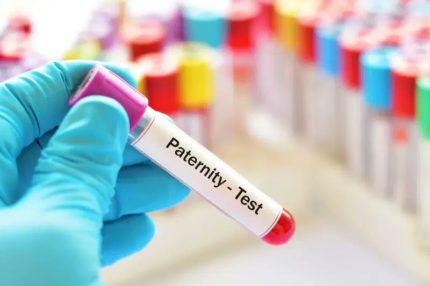A recent 2024 report by Smart DNA, a leading DNA testing center in Lagos, has unveiled startling statistics regarding paternity testing trends in Nigeria. According to the report, a significant 27% of paternity tests conducted between July 2023 and June 2024 yielded negative results, indicating that more than one in four men tested were not biologically related to the children in question.
This revelation underscores profound implications for Nigerian families, highlighting widespread issues of trust, fidelity, and paternity certainty. It reflects evolving societal norms and the increasing utilization of DNA testing to verify biological relationships amid changing family structures.
Immigration Tests Surge Reflecting the “Japa” Trend
The Smart DNA report also highlighted a notable surge in DNA tests conducted for immigration purposes, surpassing all other test types in growth. This surge correlates with Nigeria’s ongoing “japa” phenomenon, where individuals, particularly young Nigerians, seek opportunities abroad. The increase in immigration-related DNA tests suggests a growing number of parents preparing paperwork for their children’s emigration, aiming to secure dual citizenships.
This trend underscores broader economic motivations and aspirations among Nigerian families, reflecting global migration patterns and aspirations for better opportunities beyond national borders.
Regional Disparities and Gender Imbalance in Testing
The report further detailed regional disparities in DNA testing across Lagos, with a staggering 73.1% of all tests concentrated in the state. There was a notable divide between the Mainland (67.5%) and Island (32.5%) areas, raising questions about accessibility and awareness of DNA testing services.
Moreover, the report highlighted significant gender imbalance in test initiation, with men accounting for 88.2% of all test requests compared to just 11.8% by women. This disparity underscores complex dynamics of trust and accountability within relationships, reflecting societal pressures and gender roles in Nigeria.
Elizabeth Digia, Operations Manager at Smart DNA, emphasized the report’s broader implications, stating, “These findings offer a unique window into the changing dynamics of Nigerian families and society. The high rate of negative paternity tests and the surge in immigration-related testing reflect significant societal shifts that warrant further investigation and discussion.”
As Nigeria navigates evolving family structures and societal norms, the role of DNA testing continues to evolve, influencing issues of identity, migration, and familial relationships across the nation. Smart DNA remains committed to expanding access to reliable testing services while maintaining strict standards of accuracy and confidentiality nationwide.
High Rate of Paternity Fraud in Nigeria Sparks Social Media Uproar
The alarming revelation that 27% of Nigerian men who undergo paternity tests are not the biological fathers of the children they are raising has sent shockwaves across the nation. This statistic, which many believe only scratches the surface, has sparked widespread discussions on social media platforms, with users expressing their disbelief and concern.
A user on X, operating under the handle @Woson, voiced their suspicion that the actual percentage of men unknowingly raising children not biologically theirs could be significantly higher. “This isn’t even the full picture. The 27% figure is likely just from those who actually came in for paternity tests. The real number is probably much higher. A lot of people reading this might not even be fathered by their biological dads,” the user stated. This sentiment has resonated with many others who now question the extent of the issue in Nigeria.
Another user, @Brendan, highlighted the financial and emotional toll on unsuspecting fathers, stating, “That’s 27% of Nigerian men paying school fees, feeding, and providing a roof over someone else’s child.” The revelation has triggered discussions about the societal and legal implications of paternity fraud, with many calling for reforms to protect the rights of fathers.
Calls for Mandatory and Free Paternity Testing
In light of these revelations, there has been a growing call for mandatory paternity testing at birth in Nigeria. Some social media users argue that this could be the only way to prevent men from unknowingly raising children that are not biologically theirs. The user @Datsmine suggested that paternity tests should be made mandatory before naming ceremonies, a significant cultural event in Nigeria, and that the government should ensure these tests are provided for free.
The debate has also touched on deeper issues of trust and loyalty in relationships. @DekingSports, another X user, lamented, “This is a very ugly situation. We are in a world where love, trust, and loyalty are no more.” The situation has opened a broader conversation about the state of relationships in modern society, with many questioning the integrity and trustworthiness of partners. As the discussions continue to gain momentum online, there is increasing pressure on policymakers to address the issue of paternity fraud and consider implementing measures to safeguard the interests of all parties involved
Table of Contents
Discover more from OGM News NG
Subscribe to get the latest posts sent to your email.













